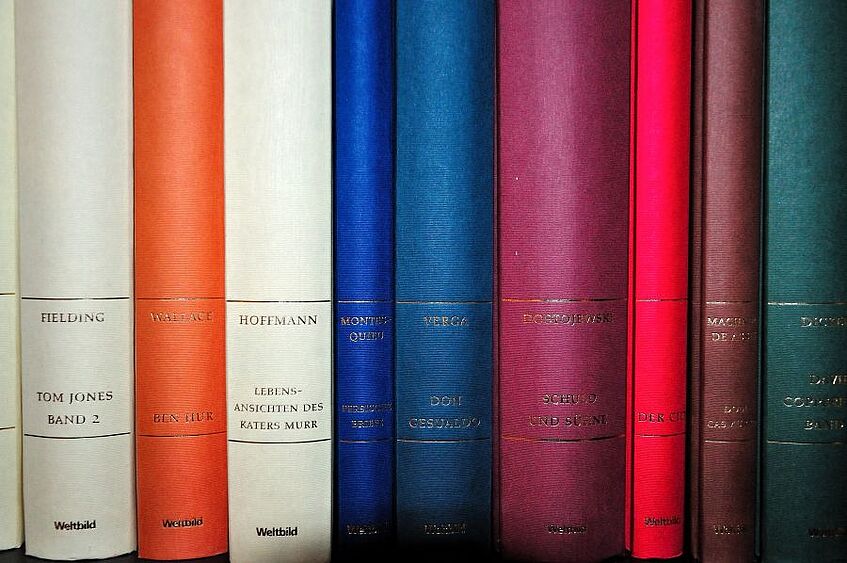Comparative Literature (Bachelor)

The bachelor’s programme in Comparative Literature focuses on literary phenomena on a supranational level. It equips students with extensive knowledge of cultural history and the ability to analyse literary texts and relate them to other literary texts, art products and media. Students learn how to carry out research independently and acquire language skills in a second modern foreign language other than English.
Bachelor of Arts
Degree Programme Code: 033 670
6 semesters / 180 ECTS credits (including 60 ECTS credits of extension curricula)
Language: German
Compulsory Online-Self-Assessment (in German)
Facts & Figures
- Students: n.a.
- Graduates in the last academic year: n.a.
- Number of semesters needed for graduation (median): n.a.
Data updated on: 03.12.2024
Attention
Instruction Language German
Please note that the instruction language of this programme is German. To start the degree programme, you need to hold a certificate of German proficiency on C1 level.
Admission Procedure
Study programme
The bachelor’s programme consists of an Introductory and Orientation Period (STEOP), compulsory modules in the key subjects of the discipline and a group of elective modules, from which students have to select one (from the subject areas: comparative literature history, knowledge of world literature or applied literature studies). To successfully complete the programme, students have to write two bachelor’s theses.
Five concepts
which you will deal with during your studies:
- Literary theory
- Social history of literature
- Reception history
- Postcolonial studies
- Digital humanities
... and many more.
Overview of the programme structure & topics
Here you find the current offer of courses for this programme to gain better insight into the topics and structure. For more information please click on the respective level.
After Graduation
Graduates have the opportunity to pursue a career in the following occupational fields:
- academic work at universities and outside of universities
- adult education
- activities in book trade and publishing, e.g. planning and editing
- work at libraries and archives
- participation in editorial teams at different media and in cultural journalism
- cultural management and international cultural transfer (exhibitions, readings, etc.)
- consulting and development activities in the cultural sector (e.g. theatre dramaturgy, cultural politics).
Graduates' Perspective on the Degree Programme
Graduates ...
- say that this degree programme receives the grade: 1.9 (good)
- rate the level of difficulty as: 3.3 (appropriate)
→ These results are basd on feedback from 88 graduates.
*You can find further assessments of the degree programme from its graduates’ perspective in the graduate survey of the bachelor’s programme in Comparative Literature graduation survey (in German).
Graduates ...
- find employment within 2 months after graduation on average.
*You can find further information on career entry and career paths in the tracking of graduates "BA Comparative Literature".

